Just why is The Walking Dead the most popular cable show of all time? It’s gory, unrelentingly grim and even the most likable characters act out of brutal self-preservation. There are no feel good moments, only increasingly distant memories of what it was like to feel good. (When a Tom Waits song, which closed last week’s episode, qualifies as a gentle lullaby, you know things have gotten tough.) I guess all of this explains why it’s a guilty pleasure: soap opera with the threat of a horrific death at any given moment.
Last Sunday’s episode “Clear” was the best of the third season, and maybe the best episode since the first few. For the first time in a while, you could see that his was a show put together by the man who made The Shawshank Redemption, The Green Mile and especially The Mist. Even though Frank Darabont is long gone, his favorite themes of faith and survival were on display. The TV show is getting to be as good as the comic. Oh yeah, spoilers below.Rick, Carl and Michonne go on a run. When this episode was coming up, I turned to Ben and said “Oh boy! A town run!” After the stop and go tribal warfare of the Governor storyline, a palette cleansing simple tale of fighting zombies for supplies seemed like a pleasant change. The Woodbury vs the Prison storyline has the potential to be a great examination of what price safety, but too often it’s reminded me of the worst of the Losties vs The Others — endless raiding parties and skirmishes to kill time. “Clear” also reminded me of Lost, but in the best way — an eerie isolated survivor with messages that no one will hear, and a few characters spotlighted to good effect.
This run is going to be different, Rick and Carl are going back to their home town. I’m a little surprised that this was within a gas tank of where this has all been taking place but, whatever. The Grimeses are returning to the last place they were happy and a family. It’s another heartbreaking, brutal reminder of what they’ve lost. On the way, they pass a hitchhiker…who begs them to stop. They don’t even slow down. A bit down the road, they get stuck in some stalled cars and zombies. Just as they finally get free and start to drive away the hitchhiker, his face never shown, comes running towards them screaming for them to stop and begging for help. They never slow down.
This is where our heroes are. Survival means allegiance to the tribe. It’s also another window into Rick’s state of mind—you’d think maybe someone who had survived that long on his own could be a good human resource, but another outsider can’t be risked. The margin for survival is too tiny, the struggle for resources too relentless.
Arriving at the town, they find it booby trapped, animals in cages luring zombies into spikes, warning messages scrawled everywhere. Rick’s old police station is stripped of guns, but they set off to find if some weapons might have been stashed in bars or stores. Suddenly the owner of the traps appears on a rooftop, covered in armor, as faceless as the hitchhiker they left behind, but this time he’s the one protecting his territory. After some gunplay, Carl, who was supposed to be safe in the car, appears and calmly shoots the mystery man, who is wearing body armor and just knocked unconscious.
Who is this mystery man who has survived on his own and created an armed fortress for one man? Removing his helmet, we’re shocked to see it’s Morgan, the kind man from the very first episode who, along with his son, took in Rick when he awoke from his coma.
While Carl and Michonne go off to find supplies for Judith—a crib and a mystery gift that Carl seeks—Rick catches up with Morgan, but not in a friendly way. Morgan has lost his mind, as anyone would. His son Duane, who we also met in Episode 1, is dead, killed by his own zombie mother when he couldn’t kill her. Morgan and Duane couldn’t make the harsh choices Rick and Carl have….and they have paid the price.
In a wonderfully acted scene by Lennie James who plays Morgan, he begs to be killed, then delivers the signature line of the show, and perhaps the season. “People like you, the good people, they always die. And the bad people do, too. But the weak people, the people like me, we have inherited the Earth.”
Is Rick even good anymore? Morgan is a good kind man who once helped a stranger. Now he’s a deranged vigilante with nothing left to live for. Rick has no goal except survival for his people, but an end game of a return to actual human society is nothing but a fantasy, as the Governor’s corrupt town proves.
Meanwhile, Carl and Michonne fight some zombies and we learn what Carl was trying to retrieve: a photo of him, Rick and Laurie. “I wanted Judith to know what her mother looked like,” he says, without emotion.
Rick, who has rejected seemingly sane people time after time, like Tyreese and his crew, wants Morgan to join their battle. “This can’t be it. It can’t be. You’ve got to be able to come back from this,” he begs Morgan, perhaps speaking for all the survivors. But Morgan would rather rule in his own hell then serve in another prison heaven and stays behind while Rick, Carl and Michonne return with guns and a crib, the most necessary supplies for the zombie apocalypse.
As they drive back, they pass the bloody remains of the hitchhiker along the road. In a wordless, devastating sequence, their car stops, picks up his backpack, and drives on.
So that’s the world, then. This episode, written by future show runner Scott M. Gimple and directed by Tricia Brock was full of many wonderful details revealing the horrific world we only have to live in an hour each week. Upon seeing a literal welcome mat, our survivors rightly figure out it’s a trap, with a spike filled pit beneath. In another heartbreaking scene, Rick finds the walkie talkie he gave Morgan back in season one, saying he would check it every morning at down. Morgan sent messages, but Rick never got them. Even good intentions are destroyed in this ruined world.
The story is full of parallels that drive home the theme: Duane couldn’t kill his already dead mother and died. Carl could and lived. Morgan is the future for Rick, if he doesn’t stop having visions and being just as ruthless as the Governor in his own way. And of course, as many have pointed out, the title of show refers not only to the zombie army but the increasingly dehumanized survivors. Andrew Lincoln is always a fine actor, but this strong script really allowed him and the rest of the cast to shine.
And Michonne finally got to say things and become an actual character and not just a cool looking but uninteresting badass. We learn she not only has ninja stealth but terrible taste in housewares. (She brings a ghastly paper mache cat back with her as a trophy.) In a show that hasn’t always known what to do with its black characters (I laughed last week when Carol had to remind Andrea that there had been a character named TDogg who was now deceased) this entire episode was a welcome change.
So why is The Walking Dead TV show so popular? Unlike post apocalyptic movies such as 28 Days Later, Zombieland, I Am Legend, Mad Max or On The Beach, the story doesn’t end after two hours with hope as everyone heads north. It just goes on and on and on and on, as we follow characters gradually getting stripped of what we used to think of as humanity. How bad will it get? Isn’t there any hope out there somewhere? Would I do any better? Is survival even worth it?
Imagining the answers to these questions is why people come back to the TV show and the comic week after week, month after month. Sure it’s a fun scary thrill ride full of gruesome special effects. But the core, when it’s there, is this merciless examination of the social contract. What’s going to save Carl and Rick? It may be a long time before we find out, if we ever do.


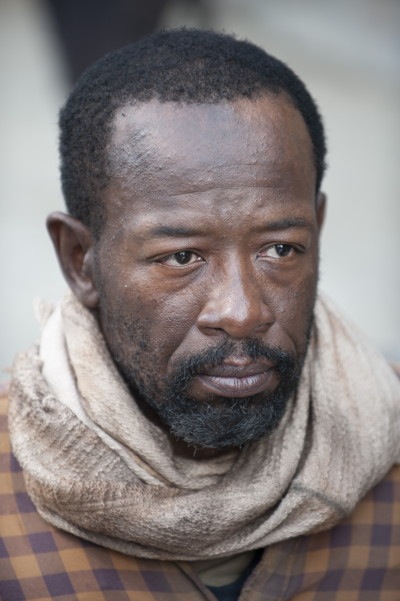
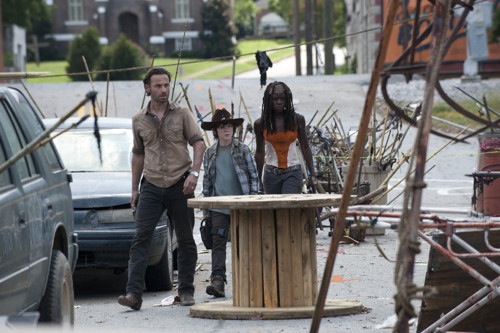
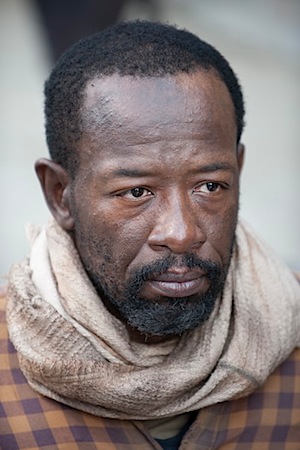
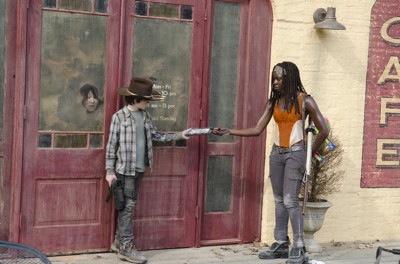
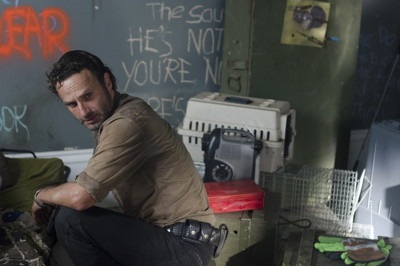
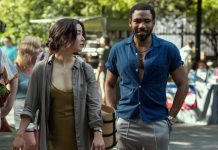





Hands down the best analysis of last weeks episode and in turn the show and comic I have read. Thanks, Heidi.
Why was Morgan knocked unconscious? Why did he remain unconscious for so long and not wake up while being carried back upstairs? It didn’t make any sense.
Walking Dead, the comic, works to a great extent because Kirkman committed himself to ending every issue on some sort of cliffhanger or big moment. That’s a lot harder than it may appear and it meant that he has to structure every issue to build up to that last page. Something of some sort always happens in an issue and even if he doesn’t pull it off perfectly, I’ve never put down the comic and wondered “Why the heck did I just buy that?”
Walking Dead, the TV show, largely works because they’ve mixed soap opera with zombie horror, something no one’s really seen before, and had some compelling actors and talented writers to pull it off.
Mike
I took a look at Wikipedia’s The Walking Dead entry to see how the show has dealt with the cause of the zombiefication of people. Unfortunately for me, the viral cause isn’t believable. And if the cause isn’t believably biological, it might as well be supernatural, which reduces the show to good versus evil: Which will win?
Perhaps, for people watching free TV, the cause isn’t important from episode to episode, but in the absence of a specific cause which can be dealt with, the remaining humans are doomed. Their deaths are just a matter of time.
I burned out on horror decades ago; the plot bottlenecks that so often arise in horror stories were a major reason why.
SRS
“the remaining humans are doomed. Their deaths are just a matter of time.”
I don’t know how to break this to you, but all our deaths are just a matter of time.
Mike
I love the show, but was rather surprised with the ease with which Rick was willing to accept Morgan’s conversion to Scientology (http://en.wikipedia.org/wiki/Clear_(Scientology)).
That was an aspect I don’t remember from the comics…
racists
saw parody series finale, where the governed, leaves with two friends?
Zombiepalooza Radio discusses many topics including the necessity to prepare for any and all disasters. We give voice to indie creators as well as professional’s in the industry of Zombie/Horror. This show was started because of a PTSD event of a veteran in October 2012 & has grown into a global phenomenon. Check us out http://tinyurl.com/8ksjnu5
Comments are closed.